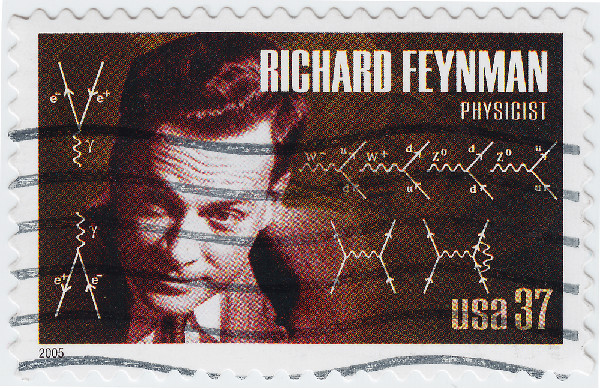FBI Files on Famous Physicist Released

Get the world’s most fascinating discoveries delivered straight to your inbox.
You are now subscribed
Your newsletter sign-up was successful
Want to add more newsletters?

Delivered Daily
Daily Newsletter
Sign up for the latest discoveries, groundbreaking research and fascinating breakthroughs that impact you and the wider world direct to your inbox.

Once a week
Life's Little Mysteries
Feed your curiosity with an exclusive mystery every week, solved with science and delivered direct to your inbox before it's seen anywhere else.

Once a week
How It Works
Sign up to our free science & technology newsletter for your weekly fix of fascinating articles, quick quizzes, amazing images, and more

Delivered daily
Space.com Newsletter
Breaking space news, the latest updates on rocket launches, skywatching events and more!

Once a month
Watch This Space
Sign up to our monthly entertainment newsletter to keep up with all our coverage of the latest sci-fi and space movies, tv shows, games and books.

Once a week
Night Sky This Week
Discover this week's must-see night sky events, moon phases, and stunning astrophotos. Sign up for our skywatching newsletter and explore the universe with us!
Join the club
Get full access to premium articles, exclusive features and a growing list of member rewards.
Physicist Richard Feynman helped create the atomic bomb, shared a Nobel Prize for his work on quantum electrodynamics, and helped to figure out the source of the space shuttle Challenger explosion.
But he was also subject to scrutiny by the U.S. Federal Bureau of Investigation, as it sought to uncover communist sympathizers during the 1950s.
Now, documents from Feynman's FBI file have been released and posted at MuckRock.com, a site dedicated to public records requests.
The FBI began keeping an eye on Feynman after other members of the Manhattan Project, which built the first atomic bomb, turned out to be Soviet spies, including Klaus Fuchs, the project's primary physicist. The documents, 361 pages, record statement after statement from the physicist's friends and colleagues, mostly praising Feynman for his brilliance, trustworthiness and loyalty to the country. [Top 10 Mad Scientists]
The documents available at MuckRock detail, for example, how in 1958 Feynman, then at Caltech, received an invitation from the Soviet Union to attend a physics conference in Moscow. After discovering this invitation by sifting through the Soviet ambassador's trash, the FBI began looking into his plans.
Feynman, meanwhile, delayed accepting it and sought guidance from the State Department, which forwarded his letter to the FBI but waited months before responding, according to MuckRock.
In 1958, the FBI conducted a routine background investigation on Feynman when he was being considered for President Eisenhower's Science Advisory Committee. Reports and memos, including newspaper articles mentioning the physicist, revealed more about Feynman's brilliance as a physicist and some of his personal interests and drawbacks.
Get the world’s most fascinating discoveries delivered straight to your inbox.
For instance, an FBI report dated July 21, 1958, based on information from a Cornell faculty member and colleague of Feynman's stated that Feynman "was one of the outstanding physicists in this country and in spite of some of his personal habits, he felt that there was no question concerning his loyalty, responsibility, discretion, or associates."
The report went on, "He stated that Professor Feynman was an accomplished jazz drummer and believed that this hobby, in the eyes of some individuals, was not in keeping with Feynman's role as a professor of physics."
In a note to the director of the FBI, dated July 29, 1958, Special Agent-in-Charge (SAC) Los Angeles notes details from an LA Times article from two years prior, regarding his relations with his wife: "The appointee's wife was granted a divorce from him because of appointee's constantly working calculus problems in his head as soon as awake, while driving car, sitting in living room, and so forth, and that his one hobby was playing his African drums. His ex-wife reportedly testified that on several occasions when she unwittingly disturbed either his calculus or his drums he flew into a violent rage, during which time he choked her, threw pieces of bric-a-brac about and smashed the furniture."
Apparently, another of Feynman's quirky traits: He was a whiz at cracking safes and picking locks, according to the released documents.
Follow Wynne Parry on Twitter @Wynne_Parry or LiveScience @livescience. We're also on Facebook & Google+.
 Live Science Plus
Live Science Plus











